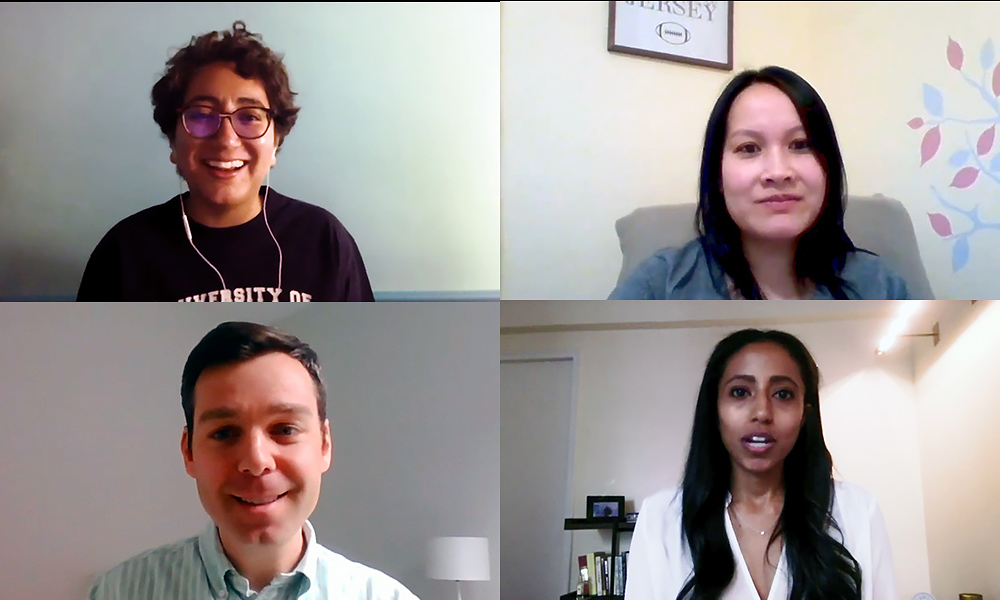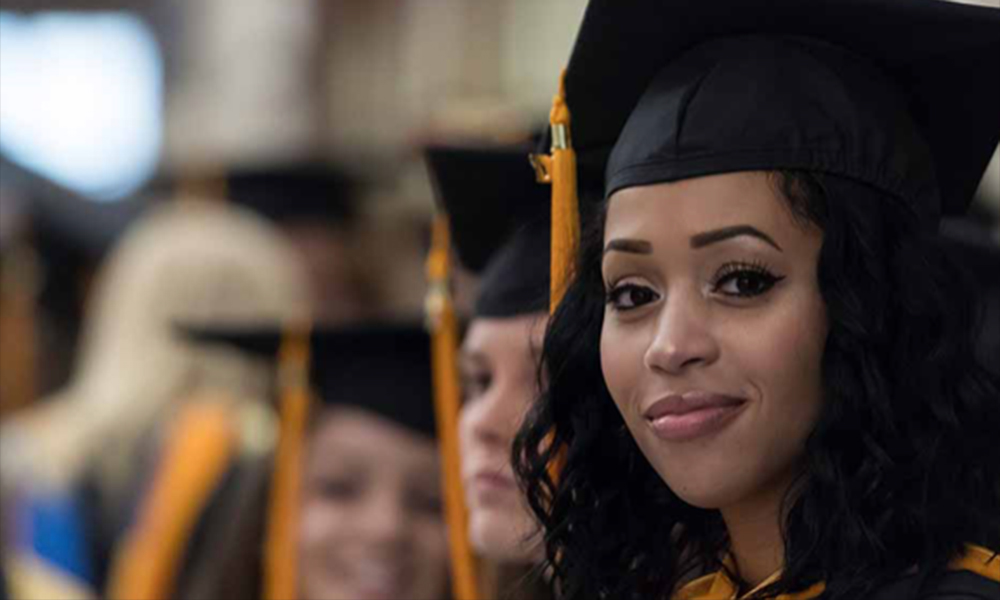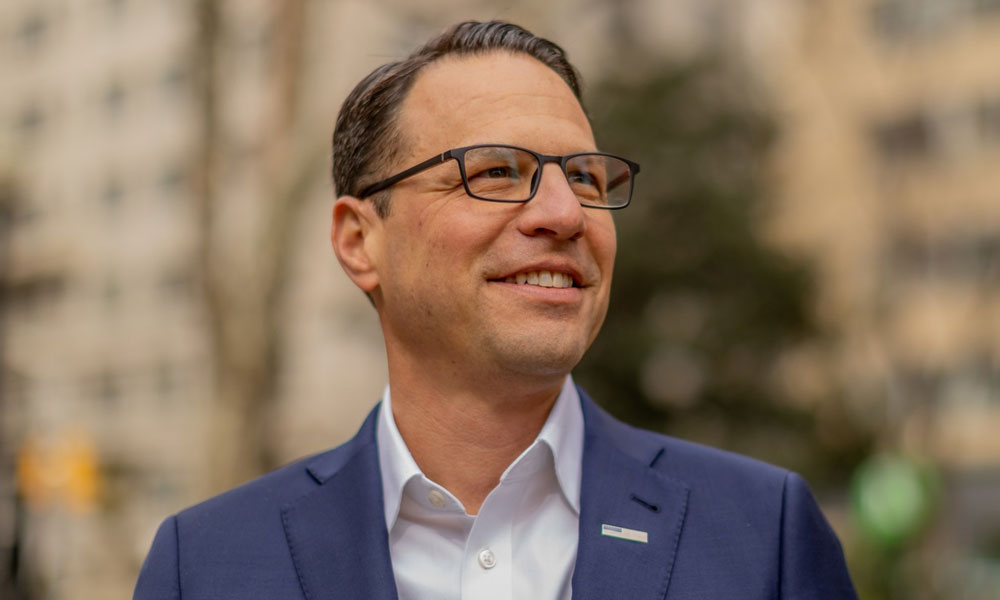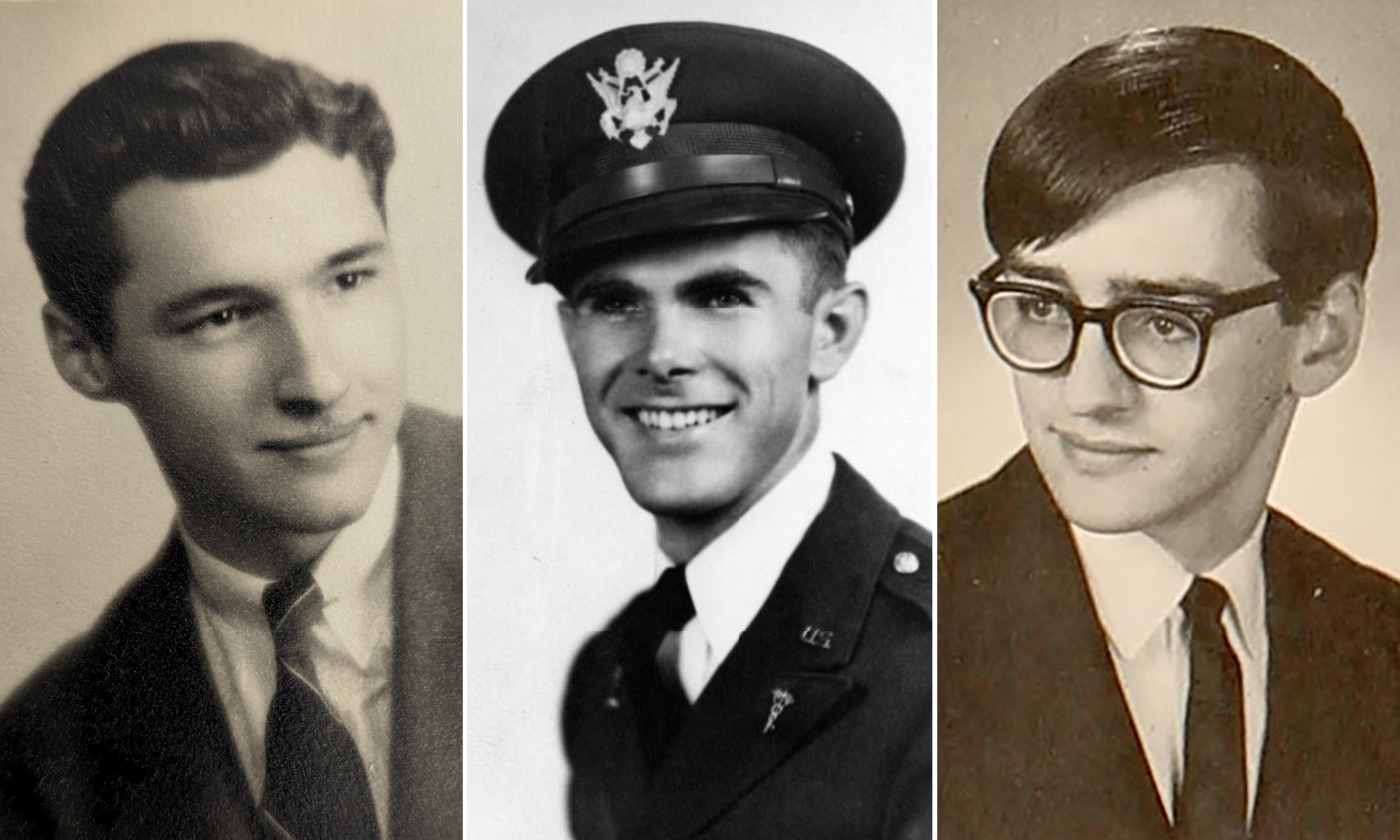The COVID-19 pandemic has created turmoil in the job market, presenting challenges for college students not seen since the Great Recession of 2008–09.
But many University of Rochester students have been able to salvage summer internships, albeit remotely. That’s according to Joe Testani, assistant dean and executive director of Gwen M. Greene Center for Career Education and Connections.
Related
 Graduating students: Lean on University community
Graduating students: Lean on University communityThe Greene Center urges graduating seniors to call on the University of Rochester community for ideas and help.

Finding a job during a recession? We’ve been there
University of Rochester alumni who graduated during the Great Recession of 2008–09 offer tips for finding a job during a recession.
The center helps connect students with resources, tools, and strategies as the students map out their academic and career goals.
Testani says that because the center has broad connections across industries and fields and the wide range of skills represented by Rochester students, the staff can be more creative in helping students think about internships that match their interests.
“Where we have relationships with the organizations, we’ve tried to reach out proactively and support students and offer guidance on how they can convert their internships to virtual internships,” Testani says. “We show them what similar companies are doing, and how they’re handling internships. We’re able to help them see that there’s a potential to do things remotely and keep those internships.”
Eleanore Barrera ’21, a double major in film and media studies and psychology from Rochester, has begun an internship with the George Eastman Museum, working remotely on the Dryden Theatre’s social media account.
“Originally, I was going to work directly with the moving image department and obtain hands-on experience working in the film archives,” Barrera says. “Ever since I moved to Rochester, I’ve loved visiting the museum and the Dryden, and there’s nothing I love more than old movies.”
The pandemic canceled that first internship, but Tyson Tate, the employer connections program director at the Greene Center, found Barrera the social media internship. “I’m incredibly grateful to have this opportunity this summer,” Barrera says.
Barrera is one of 20 Rochester students who received a Humanities for Life grant, a program supported with a five-year grant from the Andrew W. Mellon Foundation that matches students interested in the arts and humanities with local arts, cultural, and nonprofit organizations. The students are eligible for a 10-week internship and a a $5,000 stipend.
For Barrera, that made an enormous difference.
“Paid internships are incredibly rare to find in the humanities, especially film. Now, I can continue my education without worrying about how I am to pay for such a once in a lifetime opportunity.”
Barrera credits Tate’s personal interest and diligence in making sure she found an internship despite the pandemic.
“Without her, the internships would have been canceled,” Barrera says. “Instead of taking ‘no’ for an answer, she worked tirelessly with the organizations to find different jobs for all of us.”
Tate started strategizing on how to keep internships the day in March the University announced it was switching to remote learning.
“I know from my experience as an employer that students help buffer feelings of organizational uncertainty,” Tate says. “They inject energy and hope when they join an organization and create an environment for organizations to think about the future.”
Tate surveyed the 20 Humanitaries for Life grant recipients about how their unique skills could help them shift to a virtual space. “They were adaptable, positive, and creative in the process,” she says. “Many saved their own internships with this powerful step to define a new internship for themselves.”
Haylee Horn ’21 is another Humanities for Life grant recipient. A linguistics major from Leon, Iowa, she has begun interning remotely at 540WMain Inc., a nonprofit organization that uses accessible education and events to promote justice for all. Horn focuses on grant writing and researching new grant opportunities. “I’m so thankful I get to keep this position,” she says. “I was sure it was going to be canceled and didn’t know what I was going to do this summer.”
Horn says Tate advocated for her and the other grant recipients to continue the internships once they were moved online. “She’s been great through everything,” Horn says.
Kaile Ding ’21, a mathematics and computer science double major from Beijing, China, maintained his summer internship with Credit Suisse. He’s a technology analyst, helping to support the equity derivatives trading team. Ding originally was scheduled to work at the financial services office in New York City but instead is working remotely from his home in San Jose, California. He’s part of a team working on an eight-week project intended to improve how traders interact with the company’s dashboard.
Ding says the Greene Center has been a big help. “I’ve been participating in their events since my first year at Rochester,” he says, getting help with preparing his resume, developing interview skills, and other aspects of building a career.
Testani says students who graduated from the University last month fall into a different category, when it comes to taking their first steps after college, but may benefit from an internship.
“When we think about them and internships during this summer of Covid-19, there are other considerations,” he says. “An internship may be a great ‘bridge’ experience for students in between completing their Rochester degree and starting a graduate program or jumping into a full-time job in an industry sector that has been significantly impacted by the pandemic and may have paused their hiring.”
Testani says another benefit of internships for students in their senior year is an opportunity to try out a field or profession as a way to pivot from a path they had intended to follow—but that has been disrupted because of the pandemic. “All of these scenarios allow students to continue building skills, enhancing their story, and extending their networks and relationships positioning them well for whatever steps come next,” he says.
Read more
 Visit the Greene Center
Visit the Greene CenterThe Greene Center for Career Education and Connections helps students connect their academic and cocurricular interests with life after college.

Join the Meliora Collective
Connect with Rochester alumni and friends in an exclusive network designed for the University community.





